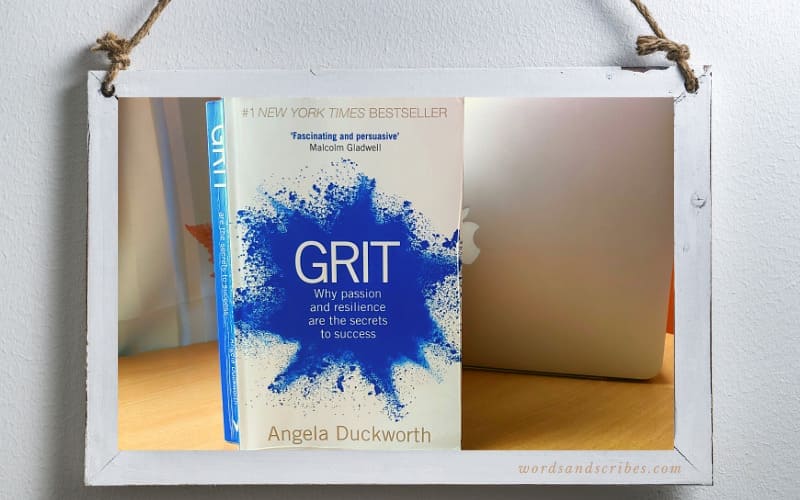The genre of self-improvement literature has grown since the days of Dale Carnegie’s How to Win Friends and Influence People. Over the decades, several writers have contributed to the growing list, mostly in the sub-categories of leadership and self-help. Despite the apparently crowded field, Angela Duckworth broke new ground with the highly acclaimed Grit, published in 2016.
Angela–an academic, a professor of psychology and MacArthur Fellow–set out to discover the best predictor of a person’s likelihood to succeed in life. She concluded that neither talent nor intelligence is a guarantee. The secret to outstanding achievement is a blend of passion and perseverance, otherwise known as grit.
Why Grit Matters
Duckworth starts by referencing data from West Point where she observed that 25% of those who made it through the military academy’s rigorous admissions process, ended up dropping out. Academic scores didn’t seem to be an indicator of which cadets were most likely to stay, so in studying the phenomenon, she developed a Grit Scale. Wouldn’t the U.S. Army spend their time and resources more efficiently if they could foretell which applicants were more likely to persevere till graduation?
A remarkable quality of the book is the various studies cited plus the testimonials from well-known high achievers, all of which support Duckworth’s theory. She gives us several examples of athletes, musicians, entrepreneurs, who start off as ‘ordinary’ with average skill and eventually emerge top in their field. I am not fond of 2000-word articles so in fewer words, I will do my best to summarise what I learnt from Grit.
Follow Your Passion
Focusing on what you love is rarely a consideration in our formative years, yet research shows that people are happier and perform better when they pursue jobs that fit their personal interests. That doesn’t mean a grit paragon always knows the one thing that lights them up. Most of them spend years exploring an assortment of interests before finding one that completely captivates them. Duckworth also points out that you can choose to foster a passion.
Practice Builds Perseverance
Gritty people stick with their commitments longer than others. It seems practice does indeed make perfect! It doesn’t mean doing the same routine repeatedly; practice is about having a clear goal and then investing time to achieve goals, always keeping track of progress. Seeking growth and continuous improvement.
The Significance of Purpose
Some grit-inclined people develop a passion in a specific area because they believe what they’re doing matters a lot to ‘other people.’ Quite often, gritty folk will first get involved in what they enjoy doing and only later will they appreciate how it can benefit others. Whether it is a determination to leave a legacy or to better the lives of society, ‘purpose’ builds your grit muscles.
Hope is a Motivator
As mentioned in the introduction, grit is about perseverance–the resolve to keep trying, to keep improving, to be undeterred by setbacks. Hope drives gritty people; they expect that today’s efforts will make tomorrow’s results better. When faced with repeated failure, rather than give up, they change their approach and even explore alternative methods. Duckworth found that one way to cultivate hope and improve grittiness in children is to nurture a growth mindset.
Parenting for Grit
There’s an entire chapter on how parents can influence grit. Duckworth interviewed grit paragons and their parents. From her findings, she deduced that parents can influence grittiness by teaching discipline, being supportive and helping children strive for high standards in whichever area they show an interest in.
Why Extracurricular Activities Are Good
According to Duckworth, grit is enhanced by structured extracurricular activities. Why? Because extracurricular activities are designed to cultivate interest, practice, purpose and hope (the four grit factors discussed in the first half of the book). She goes on to recount some interesting examples from research.
Culture Influences Personal Initiative
Culture shapes just about every aspect of our being, and that includes grit. In this context, culture refers to the shared norms and values of a group of people.
“Whether we realise it or not, the culture in which we live, and with which we identify, powerfully shapes just about every aspect of our being.”
Angela Duckworth, ‘A Culture of Grit’- Chapter 8 of GRIT
Think of groups such as a family, a sports team, or an organisation. While the power of culture in the world of sports is a no-brainer, corporate leaders may want to examine their organisation’s culture… make it grit-friendly if they want better corporate performance.
Conclusion
I encourage you to read Grit by Angela Duckworth. Whether you are interested in self-improvement or you’re just more intent on helping others, it will give you cause to ponder, and I bet you will come away with a load of actionable tips. My summary of Duckworth’s conclusions and observations probably doesn’t do the book enough justice!

